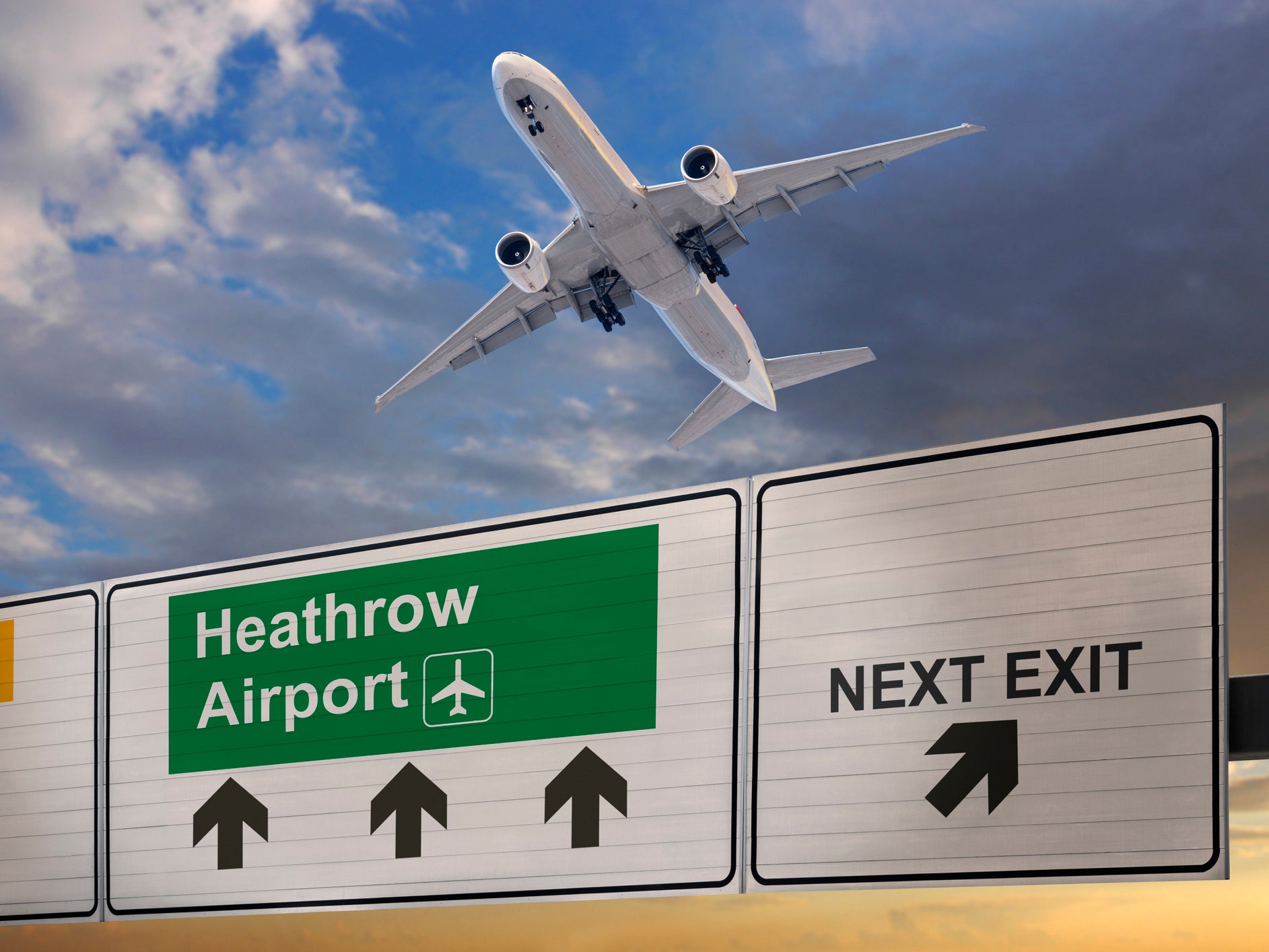Climate change crisis: Flying is ‘not the enemy’ Heathrow boss insists
John Holland-Kaye says synthetic fuels are solution, as prime minister says electric planes could be operational in ‘couple of years’

The chief executive of Heathrow airport has defended air travel, saying it is “not the enemy” in the battle against the worsening climate crisis.
John Holland-Kaye said: “The answer is not to stop people flying. It has to be about decarbonising aviation.”
Aviation is currently one of the most energy and carbon intensive forms of transport, with planes also producing a stream of other pollutants including hydrocarbons, carbon monoxide, nitrogen oxides, sulfur oxides, lead, and black carbon.
And while improvements in the efficiency of aeroplanes’ fuel consumption have been made in recent years, the global rise in demand for air travel means overall emissions have risen enormously.
In Europe, the average airline fuel consumption per passenger in 2017 was 24 per cent less than it was back in 2005, but as air traffic grew by 60 per cent to 1,643 billion passenger kilometres during the same timeframe, CO2 emissions rose by 16 per cent, according to EU figures.
Mr Holland-Kaye told the BBC’s Today programme: “The enemy is carbon not aviation. We need to protect the ability to fly in a world without carbon.”
He added: “When the government blocked Heathrow expansion 10 years ago, people started flying through Amsterdam and Paris instead, taking two flights instead of one and not a single tonne of carbon was saved.”
This can be done thanks in large part to the introduction of new synthetic fuels. Such fuels have “been around for about 100 years and [are] becoming more affordable. It needs a real push on investment,” Mr Holland-Kaye said.
The UK aviation industry has pledged to cut its net carbon emissions to zero by 2050 – but is also still planning for a staggering 70 per cent more flights over the next three decades.
Sustainable Aviation, an alliance of firms and operators such as Heathrow Airport, British Airways, easyJet, Airbus, Rolls-Royce and Nats, has published a “Decarbonisation Road-Map”, which includes plans for modernising airspace, carbon offsetting, introducing less polluting aircraft and technology, and making ground operations more efficient.
“With these actions, the UK will be able to grow passenger numbers by 70 per cent – in line with current projections – whilst reducing net emissions from 30 million tonnes of CO2 per year today down to zero,” the organisation said on Tuesday.
While the report indicates many of the aircraft and “sustainable aviation fuels” they hope to see are yet to be invented or commercially available, the prime minister has today suggested an even more optimistic alternative – electric passenger planes in two years.
Speaking to reporters on Tuesday morning, Boris Johnson said: “The aviation industry has committed to being carbon-neutral by 2050. We are on the verge, I am assured, within a couple of years, of having viable electric passenger aircraft. And we will get there.
“The sceptics are wrong to doubt the Promethean genius of humanity to solve these problems.”
In a statement, transport secretary Grant Shapps made no mention of electric aircraft being able to begin replacing existing fleets in such a short timeframe.
He said: “The fight against climate change is one of the greatest challenges facing the modern world, but the aviation sector’s commitment today is a huge step forward in creating a greener future.
“Aviation has a crucial role to play in reducing carbon emissions, and with the help of new technologies, renewable fuels and our continued international co-operation through the UN agency, the International Civil Aviation Organisation, we’ll be able to strike that balance, creating a greener and cleaner future.”
In response to the net zero “roadmap” outlined by Sustainable Aviation, Paul Beckford, Policy Director of the No 3rd Runway Coalition, said: “Sustainable Aviation’s own information shows almost nothing being done in the next five years – forcing larger carbon reductions on other sectors of the economy. This road map still talks about offsetting which has been widely discredited and biofuels which help drive deforestation.
He added: “The current global targets for alternative jet fuel use in 2050 would require 3 new bio-jet fuel refineries to be built every month for the next 30 years. Today there are just two facilities – the market is not delivering at the pace required.
“It seems that the industry simply doesn’t grasp that there may need to be restrictions on growth until these technological advances are actually proven to be operational. Their message that we can carry on as normal contradicts all the evidence showing that must act now to protect our climate.”
At the COP26 climate summit launch event at the Science Museum in London on Tuesday morning, environment secretary Theresa Villiers said climate concerns remain a key component in whether a third runway goes ahead at Heathrow.
Speaking to The Independent, she said: “Parliament has given outline planning permission for Heathrow expansion and now it’s for the promoters of the scheme to demonstrate that they can meet the really tough environmental conditions.
“If they can’t deliver on the conditions, obviously the future of the project is in question.
“But parliament has voted on it.”
Join our commenting forum
Join thought-provoking conversations, follow other Independent readers and see their replies
Comments
Bookmark popover
Removed from bookmarks